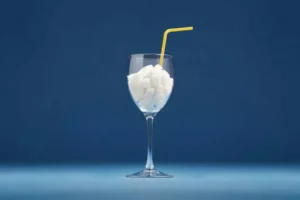Lunedì, Agosto 5th/ 2013
– di Giovanni Antonio Fois –

It is also important to find ways to deal with stress that don’t involve relying on alcohol, substances, or harmful behaviors. Stress relievers that might help you manage acute and long-term stress include deep breathing, meditation, and mindfulness practices. Sometimes, stressful events can trigger a relapse, particularly if the addictive substance or behavior is used to cope with stress. But happy events can also trigger a relapse, especially relapse prevention if others celebrate with alcohol. Avoidance is an excellent coping strategy if you know that you are likely to run into danger.

Whether it lasts a week, a month, or years, relapse is common enough in addiction recovery that it is considered a natural part of the difficult process of change. Between 40 percent and 60 percent of individuals relapse within their first year of treatment, according to the National Institute on Drug Abuse. Relapse in addiction is of particular concern because it poses the risk of overdose if someone uses as much of the substance as they did before quitting. By focusing on improving your overall health, not just your addiction, you can further enhance your chances of a successful and lasting recovery. Proactively avoiding high-risk situations and staying away from reminders of past substance use is key to minimizing the risk of relapse due to exposure to substances. By being aware of your triggers and taking conscious actions to limit your exposure, you can stay on the path of recovery.
When stress levels rise, the brain’s prefrontal cortex, responsible for cognitive control and stress regulation, is inhibited, making it harder to manage impulses and make informed decisions. It’s like taking your vitamins – you might not see immediate effects, but they’re working behind the scenes to keep you healthy and stable. Maybe someone =https://ecosoberhouse.com/ starts skipping therapy sessions, isolating themselves, or engaging in reckless behavior. It’s like watching a movie where the character slowly transforms back into their old self. Understanding this process is crucial because it gives us multiple opportunities to intervene before reaching the point of no return.
While it is more controlled and brief than a full relapse, a series of lapses can easily progress to relapse. Distraction is a time-honored way of interrupting unpleasant thoughts of any kind, and particularly valuable for derailing thoughts of using before they reach maximum intensity. One cognitive strategy is to recite a mantra selected and rehearsed in advance. A behavioral strategy is to call and engage in conversation with a friend or other member of your support network. One way of ensuring recovery from addiction is to remember the acronym DEADS, shorthand for an array of skills to deploy when faced with a difficult situation—delay, escape, avoid, distract, and substitute. Sleep regulates and restores every function of the human body and mind.


For that reason, some experts prefer not to use the term “relapse” but to use more morally neutral terms such as “resumed” use or a “recurrence” of symptoms. It’s an acknowledgement that recovery takes lots of learning, especially about oneself. Recovery from addiction requires significant changes in lifestyle and behavior, ranging from changing friend circles to developing new coping mechanisms. It involves discovering emotional vulnerabilities and addressing them. By definition, those who want to leave drug addiction behind must navigate new and unfamiliar paths and, often, burnish work and other life skills. If you are or have recently experienced a mental health relapse, then it can be hard to tell where to go from here.

A single use is usually referred to as a “slip.” Some people can slip without relapsing, heroin addiction but drinking or using increases the chance of relapse. Relapse is particularly dangerous with opioids, including prescription painkillers and heroin. If you are worried about a relapse, there’s a medication, called naloxone, that you can keep handy.

